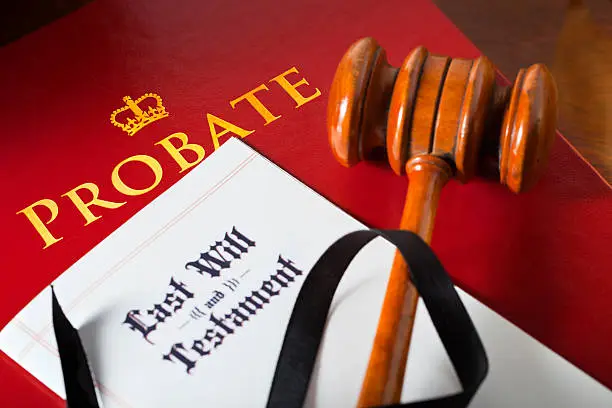The booming short-term rental market, fueled by platforms like Airbnb and Vrbo, has introduced new complexities in property ownership and inheritance. For property owners in Texas, the issue becomes even more nuanced when probate law intersects with short-term rental properties. Probate law governs the legal process of administering a deceased person’s estate, including the transfer of property ownership. This process can have significant implications for short-term rental properties, especially in terms of access, management, taxes, and legal disputes. Understanding how probate law impacts short-term rental properties is crucial for property owners, heirs, and potential buyers. This comprehensive guide explains the intersection of Texas probate law and short-term rental properties, offering actionable insights for property owners, beneficiaries, and legal representatives.
Understanding Probate Law in Texas
What Is Probate Law?
Probate is a legal process in which a court oversees the distribution of a deceased person’s estate. This process ensures that the decedent’s debts are paid and that their remaining assets are transferred to the rightful heirs or beneficiaries.
The probate process in Texas involves several key steps, including:

- Filing a petition to open probate: This step initiates the legal process.
- Validating the will: The court determines if the will is legally valid.
- Appointing an executor or administrator: This individual is responsible for managing the estate.
- Inventorying the estate: Assets, including short-term rental properties, are identified and valued.
- Paying debts and taxes: Debts owed by the decedent must be settled before assets are distributed.
- Distributing remaining assets: The remaining estate is distributed to heirs according to the will or Texas intestacy laws.
Probate is required for most property owned solely by the decedent unless it is held in a way that allows for automatic transfer to heirs, such as joint tenancy with right of survivorship.
How Probate Differs for Real Estate
While many assets, such as bank accounts or investment portfolios, may transfer easily, real estate presents unique challenges. Real estate, including short-term rental properties, is considered “probate property” if the title is solely in the decedent’s name. This classification means the property must go through the probate process before ownership is transferred to heirs or beneficiaries.
How Probate Law Impacts Short-Term Rental Properties
1. Ownership and Access Issues
One of the most immediate concerns following the death of a property owner is determining who has the right to access and manage the short-term rental property. If the property is part of a popular rental platform, bookings may already be scheduled, and guests may have active reservations.
Key Implications:
- Restricted Access: If the property is part of a probate estate, the executor or administrator may need to file court motions to access and manage the property.
- Loss of Income: While the probate process is ongoing, the property’s ability to generate income from bookings may be affected.
- Access for Tenants and Guests: If the property is booked for future stays, guests may face cancellations or disruptions, affecting the property’s rating and revenue potential.
Solution: To avoid access issues, property owners can establish a living trust or name a beneficiary through a transfer-on-death deed. These tools allow for the smooth transfer of property ownership without going through probate.
2. Transfer of Ownership
Ownership of short-term rental properties does not automatically transfer to heirs. Instead, it follows the instructions of the will or, in the absence of a will, Texas’ intestacy laws.
Key Implications:

- Delay in Ownership Transfer: Probate can take several months to a year, delaying heirs’ ability to manage, sell, or rent the property.
- Intestate Succession Rules: If there is no will, Texas intestacy laws determine who inherits the property. This process can lead to disputes among family members, especially when multiple heirs are involved.
- Title Clearance: To sell or refinance a short-term rental property, the title must be “clear,” meaning it is free from probate claims. Heirs may need to file affidavits of heirship to establish ownership.
Solution: Property owners can avoid probate by placing the property in a living trust or designating beneficiaries through a transfer-on-death deed, allowing for immediate transfer of ownership upon death.
3. Property Management and Booking Obligations
Short-term rental properties often have ongoing obligations, such as guest bookings, cleaning schedules, and maintenance. During probate, it may be unclear who is responsible for these duties.
Key Implications:
- Cancellation of Bookings: Without an active property manager or owner, upcoming guest bookings may need to be canceled.
- Loss of Revenue: Delays in property management may result in missed rental income.
- Disputes Over Control: If multiple heirs are involved, disagreements may arise over how the property should be managed.
Solution: Executors should work with booking platforms to transfer control of the rental listing. In some cases, they may be able to reassign the host account to the executor or the designated heir.
4. Property Taxes and Financial Obligations

Texas probate law requires the estate to settle debts before distributing assets to heirs. For short-term rental properties, financial obligations may include property taxes, mortgage payments, and maintenance costs.
Key Implications:
- Unpaid Taxes and Liens: If property taxes are not paid during probate, the county may place a lien on the property.
- Ongoing Mortgage Payments: If the short-term rental property has an outstanding mortgage, monthly payments must continue.
- Operating Expenses: Utility bills, insurance, and cleaning fees must be paid to keep the property operational.
Solution: The estate’s executor can use estate funds to cover these expenses during probate. Property owners can also set up a financial reserve or trust to handle payments after death.
5. Disputes Among Heirs and Beneficiaries
Disputes can arise among heirs or beneficiaries regarding how a short-term rental property should be managed or sold. If multiple parties inherit the property, there may be disagreements about whether to keep the property as a rental, sell it, or divide its proceeds.
Key Implications:
- Co-Ownership Disputes: Multiple heirs may have differing opinions on how the property should be used.
- Forced Sale or Partition Lawsuits: If heirs cannot agree on property use, a court may order the sale of the property.
- Legal Costs: Disputes can result in costly litigation, which reduces the value of the estate.
Solution: Property owners can reduce disputes by specifying clear instructions for the short-term rental property in their will or trust. This guidance helps reduce ambiguity and prevent conflict among heirs.
How to Protect Short-Term Rental Properties From Probate
Establish a Living Trust
Placing short-term rental properties in a living trust allows for seamless transfer of ownership upon death. The property’s title is transferred to the trust, and the trust’s designated beneficiaries receive the property outside of probate.
Use a Transfer-on-Death Deed (TODD)
Texas allows property owners to file a transfer-on-death deed (TODD), which names a beneficiary who will inherit the property upon the owner’s death. This process avoids probate and allows the beneficiary to assume ownership immediately.
Draft a Comprehensive Will
A clear, legally sound will can minimize probate issues. Property owners can specify how the short-term rental property should be managed, who inherits it, and how operating costs should be handled during the probate process.
Key Takeaways: Protecting Your Texas Short-Term Rental from Probate
Probate law can significantly impact short-term rental properties in Texas. Issues like access, management, ownership, taxes, and family disputes often arise, affecting revenue and property use. Property owners can avoid probate complications by using estate planning tools like living trusts, transfer-on-death deeds, and comprehensive wills.
For heirs and beneficiaries, understanding the probate process is crucial for preserving the value and revenue potential of short-term rental properties. By being proactive and working with estate planning attorneys, property owners can ensure a smoother transition for their heirs and protect their property’s financial stability.








